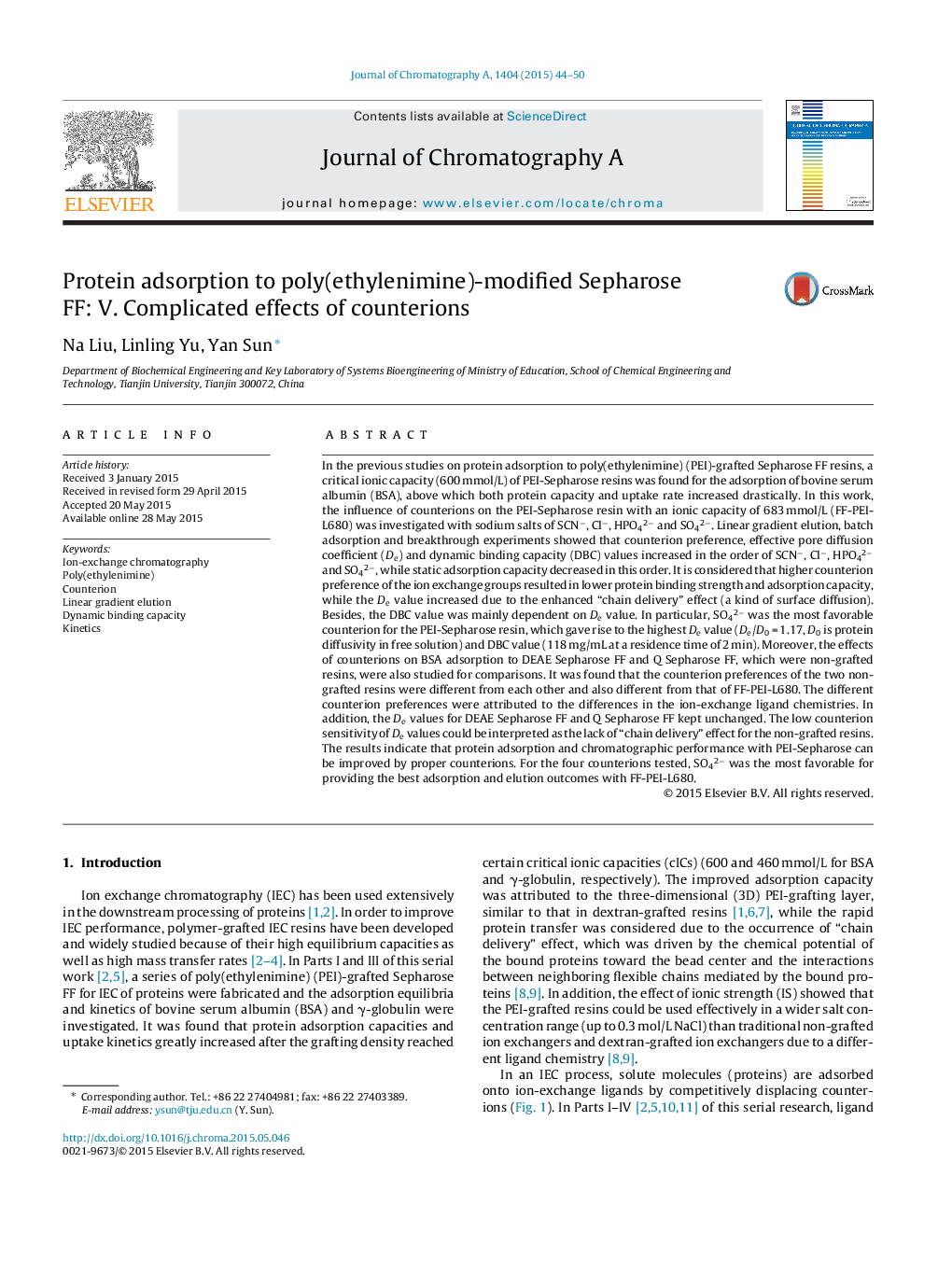| Article ID | Journal | Published Year | Pages | File Type |
|---|---|---|---|---|
| 1199320 | Journal of Chromatography A | 2015 | 7 Pages |
Abstract
In the previous studies on protein adsorption to poly(ethylenimine) (PEI)-grafted Sepharose FF resins, a critical ionic capacity (600Â mmol/L) of PEI-Sepharose resins was found for the adsorption of bovine serum albumin (BSA), above which both protein capacity and uptake rate increased drastically. In this work, the influence of counterions on the PEI-Sepharose resin with an ionic capacity of 683Â mmol/L (FF-PEI-L680) was investigated with sodium salts of SCNâ, Clâ, HPO42â and SO42â. Linear gradient elution, batch adsorption and breakthrough experiments showed that counterion preference, effective pore diffusion coefficient (De) and dynamic binding capacity (DBC) values increased in the order of SCNâ, Clâ, HPO42â and SO42â, while static adsorption capacity decreased in this order. It is considered that higher counterion preference of the ion exchange groups resulted in lower protein binding strength and adsorption capacity, while the De value increased due to the enhanced “chain delivery” effect (a kind of surface diffusion). Besides, the DBC value was mainly dependent on De value. In particular, SO42â was the most favorable counterion for the PEI-Sepharose resin, which gave rise to the highest De value (De/D0Â =Â 1.17, D0 is protein diffusivity in free solution) and DBC value (118Â mg/mL at a residence time of 2Â min). Moreover, the effects of counterions on BSA adsorption to DEAE Sepharose FF and Q Sepharose FF, which were non-grafted resins, were also studied for comparisons. It was found that the counterion preferences of the two non-grafted resins were different from each other and also different from that of FF-PEI-L680. The different counterion preferences were attributed to the differences in the ion-exchange ligand chemistries. In addition, the De values for DEAE Sepharose FF and Q Sepharose FF kept unchanged. The low counterion sensitivity of De values could be interpreted as the lack of “chain delivery” effect for the non-grafted resins. The results indicate that protein adsorption and chromatographic performance with PEI-Sepharose can be improved by proper counterions. For the four counterions tested, SO42â was the most favorable for providing the best adsorption and elution outcomes with FF-PEI-L680.
Keywords
Related Topics
Physical Sciences and Engineering
Chemistry
Analytical Chemistry
Authors
Na Liu, Linling Yu, Yan Sun,
